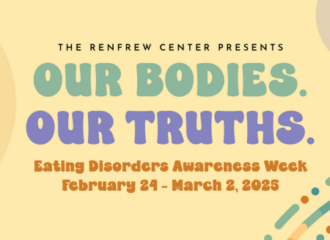Explore Categories

6 Stereotypes About Bulimia
This blog challenges six common stereotypes about bulimia to promote understanding and help more people get the support they deserve.

Returning to Eating Disorder Treatment After a Relapse
Relapse is part of the recovery journey. Learn how to navigate it with self-compassion, support, and a renewed sense of possibility.

Can Fasting Lead to An Eating Disorder?
Fasting is often praised for its health benefits, but can it also be a gateway to disordered eating. Explore the risks, warning signs, & healthier approaches to nutrition and well-being.

The Psychological Impact of an Eating Disorder
Discover the emotional factors behind eating disorders and why addressing them is key to lasting recovery.

5 Common Stereotypes About Anorexia Nervosa and Why They’re Wrong
Anorexia nervosa is often misunderstood. This blog breaks down five harmful stereotypes to reveal the truth.

Breaking Barriers: A Professional’s Role in Eating Disorder Awareness for BIPOC Communities
BIPOC communities face high eating disorder rates yet struggle with diagnosis and care. Learn how professionals can drive awareness and equity.

Ozempic, Weight Loss, and Eating Disorders: What You Need to Know
As GLP-1 medications like Ozempic gain popularity for weight loss, experts warn of their risks for eating disorders. Learn how these drugs may interfere with recovery, trigger disordered behaviors, and impact long-term health.

“They Don’t Look Like They Have an Eating Disorder”
Discover why eating disorders can’t be identified by appearance alone and how myths and stigma impact recognition, treatment, and support.

Renfrew’s 2025 Eating Disorders Awareness Week Campaign: Our Bodies. Our Truths.
The Renfrew Center is proud to join other eating disorder organizations throughout the country to celebrate Eating Disorders Awareness Week, held February 24 – March 2, 2025.
Reach Out to Us
Talk with a Program Information Specialist at the number above to learn more about our
services and to schedule an assessment. Or, fill out the information below and we will contact you.
